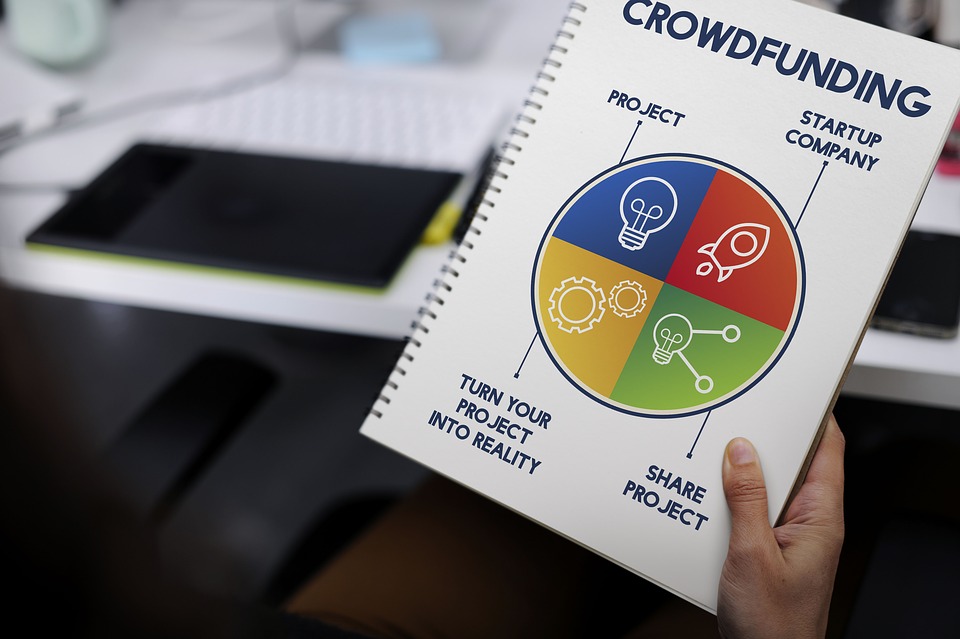
“There is no such thing as free money.” That was a true statement until Crowdfunding came on the scene. If you ever wondered what crowdfunding is all about and how it can benefit your business, you are not alone.
But I admit it – the money isn’t exactly free. I wanted to get your attention. But it is the closest you can come to free money. The caveat is that you do actually earn it, but not in traditional ways, i. e. it’s not a loan nor is it a grant. It can come from family and friends, and – here’s the exciting piece – it can also come from strangers.
Crowdfunding is the Internet phenomenon that provides a means to fund legitimate projects of various kinds, some related to business; some very personal. The projects are as diverse as the users on the Internet. Projects have included paying off exorbitant and extraordinary medical bills, funding a new type of mosquito repellant specifically designed to help stave off malaria in Africa, generating funds for writing and publishing a novel or a musician’s time in a sound studio. It can even fund projects involving pets and animals.
If your project appeals to the reader, it just might get funded. Crowdfunding is similar to a grant in that there is a need identified, there is an ask and there is a response. Hopefully, the response can come from multiple sources (individuals.)
There are two models of crowdfunding. One is donation based where supporters will donate specific dollars for your project. Often the donations fall into different categories of giving and, as the recipient of the funds, you offer some type of thank you for donations coming in at the various levels you desigante. For instance, if you are a novelist seeking funds for the ability to publish your novel, you might offer an autographed copy of the finished novel at one level or you might offer to have the donor’s name listed in the book at another. You might even name a character in the book after your highest donor. You get the picture.
The other is investment crowdfunding. It is usually for larger dollars. The donor actually becomes a shareholder. That means whatever is funded, the donor has the potential to make money from the investment in the project. A good example would be the invention of a pen that has endless ink. Now, to my knowledge no one has invented this, but if they did and they needed funds for manufacturing and getting the pen to the market, every donor would receive a return on their investment in a successful funding campaign.
Since crowfunding’s beginning, the number of platforms has increased tremendously. Each platform may address a different type of project, something similar to different genres of books or movies. Some are platforms for medical projects or inventions. Others lean toward the creative side and will fund projects related to the arts.
One of the earliest and best known crowdfunder, Kickstarter, has launched over 61,000 sites and generated over $220 million in donations, according to their sources.
To date there are over 452 crowdfunding platform websites. In 2012, those crowdfunding platforms collectively launched more than 1 million campaigns and raised $2.7 billion. The projections for 2013 are $5.1 billion.
There are fees associated with crowdfunding. The fees can range anywhere from 4% to as much14% of what you raise. Keep in mind that the funds raised have ranged from a few hundred dollars to in the millions. The funds are raised for the project you designated, but you are not required to pay this money back unless that was stipulated in the crowdfunders rules and generally it is not.
Every crowdfunding platform has it’s own rules. Careful research of each is necessary for the fit to your project. The platform provides the template for a funding website and provides the means to share the project through social media.
If you decide crowdfunding is for your business or project, keep in mind that there is lots of competition for the donors. To attract attention on the Internet in general, you must be creative and unique. To attract attention for crowdfunding, you must be even more so.
Do not undertake a crowdfunding project without giving it careful thought or without a well planned strategy for achieving your funding goal. Not surprisingly, there are classes and resources that can help with this.
Crowfunding is a viable source of funds to help make your dreams and vision become a reality through the collective generosity and cooperation of many.
So, ultimately, crowdfunding may be, in sense, free money. Just bear in mind you will put in some work, it will take time and you must do research. Most of all, it should be a project worth funding.
Should you pursue crowdfunding? If you believe in your project, a resounding yes to the possibilities and benefits that crowdfunding offers.
Keywords: crowdfunding, free money, donors, Kickstarter, crowdfunding platform
Freelance writer Cynthia Turner and team are here to help you with your writing needs whether fiction or nonfiction, nonprofit or for profit or personal. http://www.featherwriters.com/

No Response to "Crowdfunding and Benefits To Your Business"